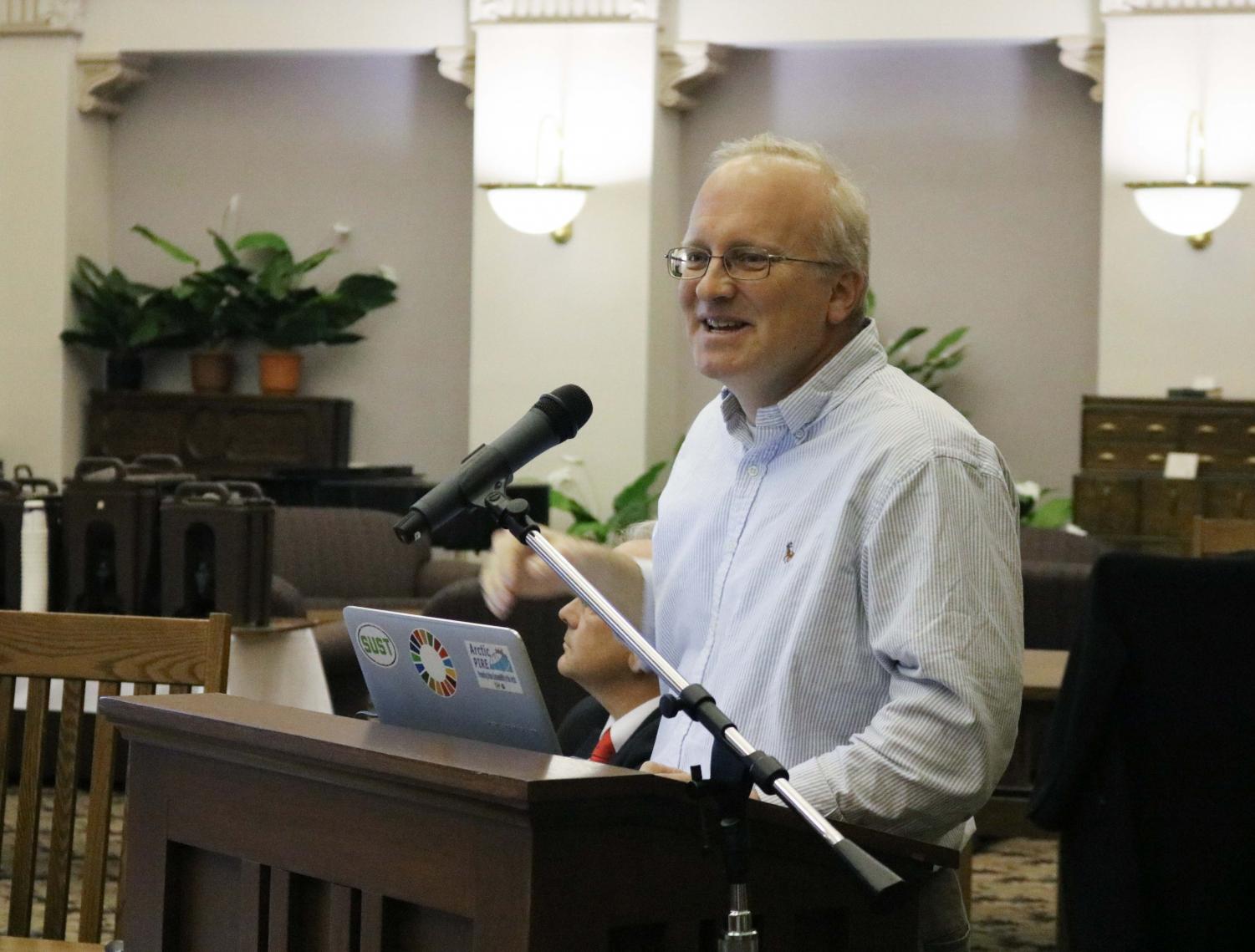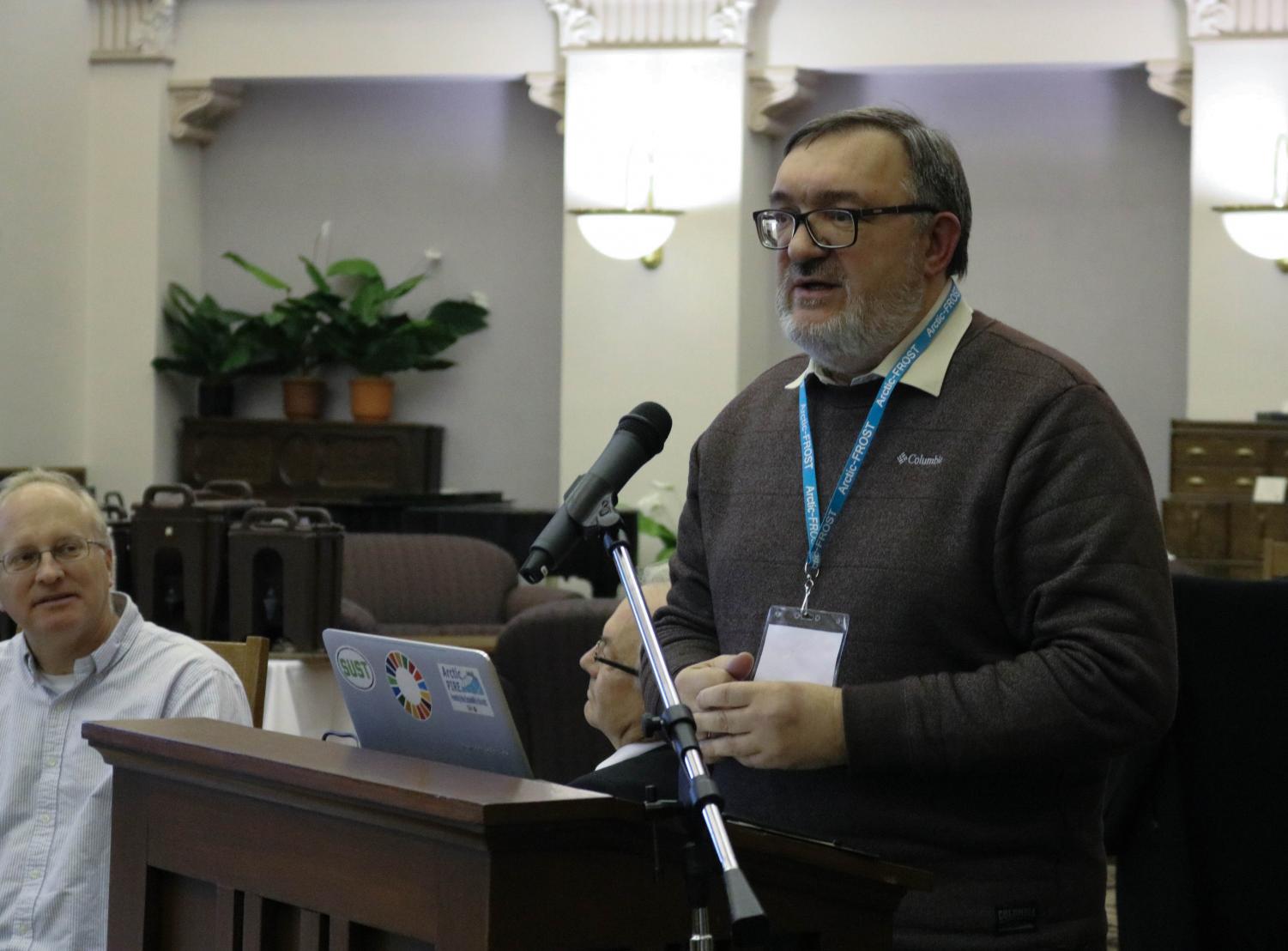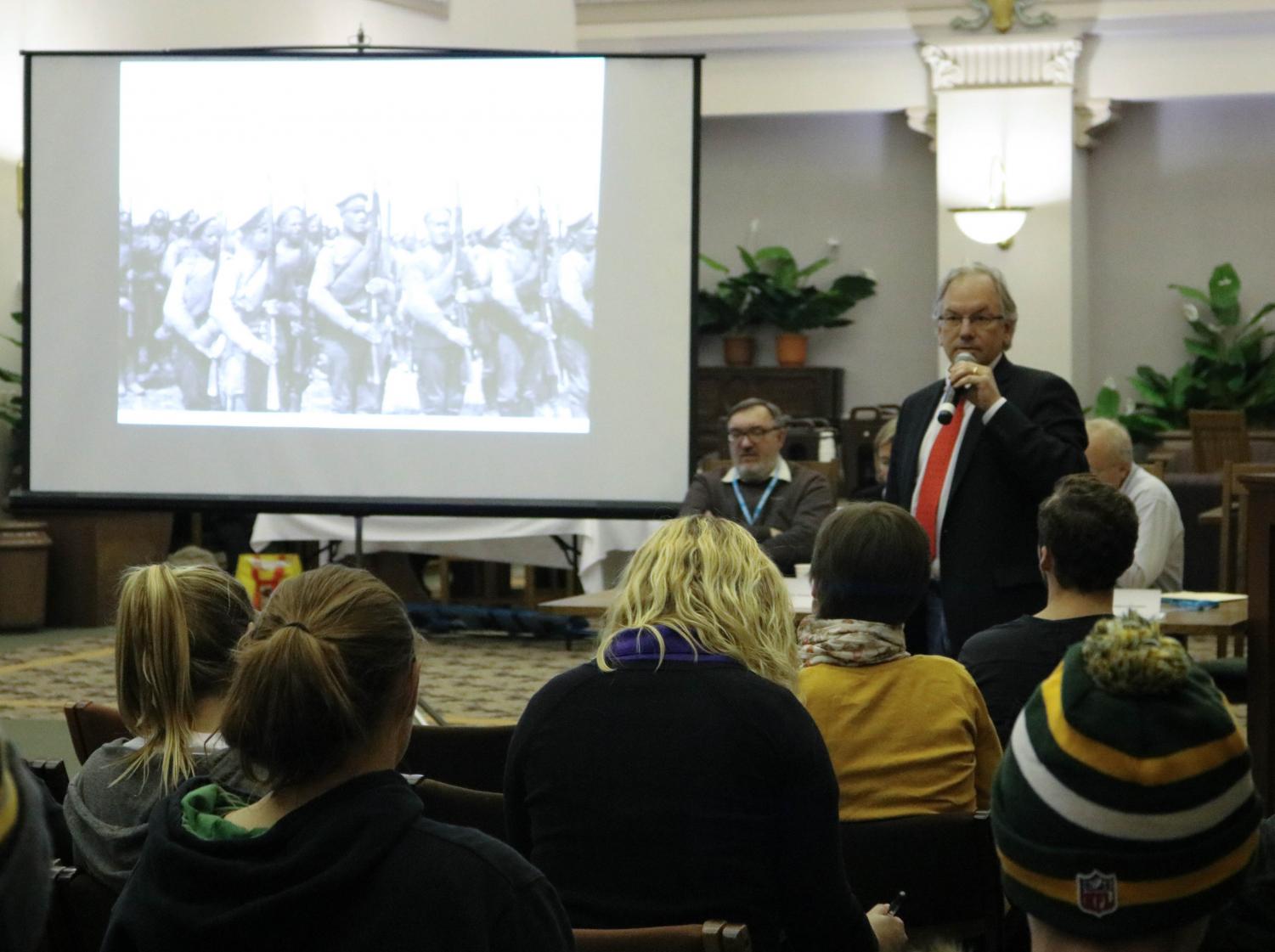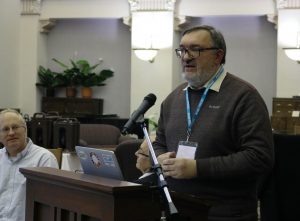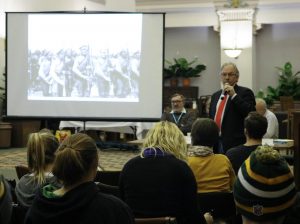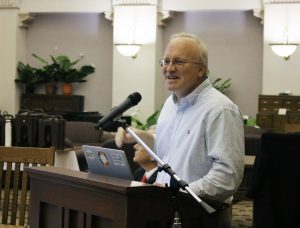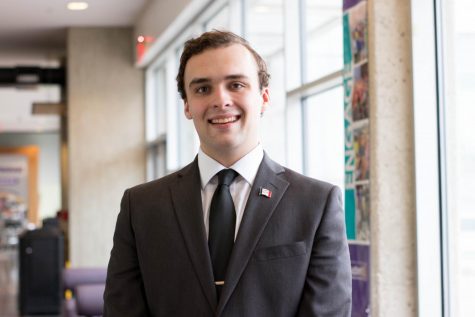1917 Russian Revolutions remembered
Nov 13, 2017
On Tuesday, Nov. 9, 100 years after the 1917 October Revolution that overthrew the Russian Provisional Government and replaced it with a socialist regime that would rule Russia for the next 74 years, UNI welcomed four prominent speakers for a panel titled “Russian Revolution and Modern Russia (1917-2017): 100 Years of Dreams and Realities.”
The panel was held in the Seerley Great Reading Room. Approximately 50 were in attendance.
The panel drew on experts from both the United States and Russia. Panelists included Gregory Bruess from UNI’s History Department, Robert Orttung of the George Washington University in Washington, DC, Marya Rozanova of the Russian State Hydrometeorological University in St. Petersburg, Russia and Alexander Sergunin from St. Petersburg State University in St. Petersburg, Russia.
Each professor presented a 10 minute lecture on a topic of their choice related to the Russian Revolution or modern Russia.
Bruess presented a brief overview of the 1917 revolutions that would forever change Russian society.
“So we had Nicholas II operating a very, very horrible and catastrophic war. By December of 1916, roughly two and half years into the war, Russia had 12.5 million casualties,” Bruess said. “That’s just almost impossible to imagine!”
Bruess continued, saying, “Meanwhile, in February 1917, conditions are very, very poor. The weather is poor, transportation is pathetic, there’s no grain getting into the city, there’s no bread and also there are strikes in the major manufacturing centers within St. Petersburg.”
Difficult living conditions and an unpopular war contributed to the fall of the Russian monarchy, but there was one last factor that was the straw that broke the camel’s back.
“Sheer incompetence and stupidity — that pretty much sums the whole thing up,” Bruess said. “So here’s sheer incompetence and stupidity, right here: Tsar Nicholas II.”
Nicholas II is widely regarded as having poorly handled the events of his tsardom, particularly during the final years of his rule as revolutionary fervor was building throughout the empire.
Nicholas II was forced to step down after the 1917 February Revolution, as the imperial regime had “absolutely collapsed,” according to Bruess, and was replaced with the Russian Provisional Government.
The Provisional Government implemented several democratic reforms but failed to improve living conditions, contributing to the socialist October Revolution later that year, led by Vladimir Lenin. This ultimately led to the creation of the Soviet Union in 1922.
Orttung spoke about Russian international media, most notably RT (Russia Today), which Orttung repeatedly described as “Russian propaganda.”
“In 1984, when CNN appeared on the scene, that’s when the Americans and the British — CNN and BBC — really started to define the narrative of international politics,” Orttung said. “Anglo-Americans, through those two stations, were really able to set the tone of how we understand politics.
“And so in 2005, [the Russians] were tired of listening to the Anglo-American narrative of world politics,” Orttung continued. “They thought it was time the world hears a Russian voice, and so they set up RT […] to try and counter what they saw as the American dominance of the world narrative.”
Rozanova spoke about the attitudes of young Americans on extremist politics, particularly communism.
Rozanova cited a 2017 survey produced by YouGov, which found that among millennials, 42 percent would prefer to live in a capitalist country, 44 percent would prefer to live in a socialist country, 7 percent would prefer to live in a fascist country and 7 percent would prefer to live in a communist country.
Across the entire American population, 59 percent favored capitalism, 34 percent favored socialism, 4 percent favored fascism, and 3 percent favored communism.
Rozanova later pointed out that, according to the same survey, 53 percent of American millennials felt that the American economy worked against them, which could serve as a possible explanation for the rise in support for socialist and extremist political ideology among young Americans.
“Sometimes people tend to express their protest by choosing alternative political regimes without taking seriously the consequences; that is why I am here today to talk about the Russian Soviet experience and to not make any mistakes in the future for our country,” Rozanova said.
Rozanova also expressed concern that 69 percent of Americans do not know the definition of communism or misidentify it, despite an uptick in support for the ideology, and that only 31 percent of survey respondents who preferred communism understood what communism actually entailed.
Rozanova described herself as being part of the “last Soviet generation” and remembered what life was like during the Soviet era.
Rozanova also referenced a survey conducted in Russia regarding views of the old Soviet regime. Rozanova seemed relieved that Soviet-communist ideas were decreasing in popularity in the country, especially among young Russians, and that communist ideas are seen as increasingly unlikely to make a comeback in Russia.
Sergunin was the last panelist who lectured, and he chose to talk about the impact of Marxist thought on modern Russian political thought.
After the lectures, a brief Q&A was held, after which the panel was concluded.


